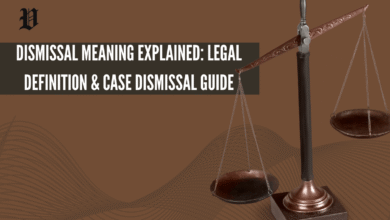Guide to Nevada Small Claims Court: Las Vegas, Reno, Clark County

Hey there! If you’re dealing with a dispute over money—like an unpaid loan or a landlord holding onto your deposit—Nevada’s Small Claims Court might be your ticket to sorting things out without breaking the bank. This guide is your go-to resource for understanding how small claims work in Las Vegas (Clark County), Reno (Washoe County), and across Nevada. I’ve packed it with everything you need: what small claims court is, who can file, how to do it, costs, limits, timelines, and tips to win your case. Plus, I’ve included clear tables and an expanded FAQ to answer all your burning questions. While rules are consistent statewide, always double-check with your local Justice Court for the latest details.
What’s Small Claims Court All About?

Small Claims Court in Nevada is a simple, affordable way to settle these disputes without wading through complicated legal waters. It’s part of the Justice Courts, designed for claims up to $10,000. You don’t get a jury—just a judge who listens to both sides in a relaxed setting. Most folks represent themselves (called “pro se”) to keep costs low. The catch? It’s only for money disputes, not for things like forcing someone to return your stuff or handling divorce or criminal cases.
Who Can File and What Cases Work?
Wondering if your situation fits? Here’s what you need to file in Small Claims Court:
- Your claim is for money damages, maxing out at $10,000 (you can waive any extra to stay under the limit).
- You’re 18 or older (if you’re younger, you’ll need a guardian to file for you).
- The dispute isn’t too old (more on time limits later).
- The person or business you’re suing lives, works, or did the deal in the county where you’re filing.
- If you’re a business, the claim must tie to your operations, and you’ll need an officer or employee to represent you.
Cases that fit perfectly:
- Someone owes you money (like a loan or unpaid bill).
- A contractor did shoddy work or didn’t finish the job.
- Your car got dinged in a fender-bender, and you need repair costs.
- Your landlord won’t return your security deposit.
- You bought something defective, and the seller won’t fix it.
Cases that don’t belong:
- Criminal issues (take those to the police).
- Traffic tickets.
- Family matters like custody or divorce.
- Claims over $10,000 (you’ll need District Court for those).
Real-world examples:
- Suing your landlord for keeping your $2,000 deposit without reason.
- Getting $5,000 for a car repair shop’s mistake that wrecked your engine.
- Chasing a friend for a $3,000 loan they never paid back.
People also see: Warrant Searches in Las Vegas and North Las Vegas: How to Stay Informed and Avoid Legal Trouble
How Much Can You Sue For?
In Nevada, you can sue for up to $10,000 in small claims, and there’s no minimum (even a $50 claim works, though most folks start around $1). This applies everywhere—Las Vegas, Reno, or rural counties. If your claim is bigger, you can either drop the extra amount to fit the limit or head to civil court.
| Nevada Small Claims Limits by County | Maximum Claim | Minimum Claim |
|---|---|---|
| Clark (Las Vegas) | $10,000 | None |
| Washoe (Reno) | $10,000 | None |
| Other Counties | $10,000 | None |
| Nevada vs. Other States’ Small Claims Limits | Maximum Limit |
|---|---|
| Nevada | $10,000 |
| California | $12,500 (individuals) |
| Texas | $20,000 |
| New York | $10,000 (NYC); $5,000 (elsewhere) |
| Florida | $8,000 |
| Arizona | $3,500 |
| Colorado | $7,500 |
Time Limits for Filing (Statute of Limitations)
You can’t wait forever to file your case. Nevada law sets deadlines based on your dispute:
- Written contracts (like a signed agreement): 6 years from when the deal was broken.
- Oral contracts or debts (like a handshake deal or unpaid bill): 4 years.
- Property damage (like a car crash): 3 years.
- Fraud: 3 years from when you discovered it.
| Statute of Limitations for Common Cases | Time Limit |
|---|---|
| Debt (Open Account) | 4 years |
| Property Damage | 3 years |
| Written Contracts | 6 years |
| Oral Contracts | 4 years |
Where to File: Jurisdiction and Court Locations
You’ll file in the Justice Court of the county where the person you’re suing lives, works, or where the issue happened. In Las Vegas, that’s Clark County, with courts in townships like Las Vegas, Henderson, and North Las Vegas. In Reno, head to Washoe County’s Reno Justice Court.
| Clark County & Reno Court Locations | Address | Phone |
|---|---|---|
| Las Vegas Justice Court | 200 Lewis Ave, Las Vegas, NV 89101 | (702) 671-3478 |
| Henderson Justice Court | 243 S Water St, Henderson, NV 89015 | (702) 455-7951 |
| North Las Vegas Justice Court | 2428 N Martin L King Blvd, North Las Vegas, NV 89032 | (702) 455-7801 |
| Reno Justice Court | 1 South Sierra St, Reno, NV 89501 | (775) 328-3110 |
How to File: Step-by-Step Guide
Ready to take action? Here’s how to file your case:
Get Your Ducks in a Row: Make sure your claim fits the rules and gather evidence like contracts, receipts, photos, or witness statements (1-3 days).
Fill Out the Paperwork: Grab the Small Claims Affidavit/Complaint form from the court or online—it’s pretty simple (30-60 minutes).
File Your Case: Take your forms to the court clerk and pay the filing fee (1-2 hours).
Notify the Defendant: The court or a process server will deliver the papers to the person you’re suing (1-2 weeks).
Handle Any Counterclaims: If the defendant sues you back, file a response (about a week).
Prep for Court: Organize your evidence and practice what you’ll say (1-4 weeks).
Show Up for the Hearing: Tell your story to the judge (1-2 hours).
Collect Your Winnings: If you win, you may need to use garnishment or liens to get paid (1-6 months).
| Step-by-Step Filing Process | Description | Estimated Time |
|---|---|---|
| Research & Prepare | Check limits, gather documents | 1-3 days |
| Complete Forms | Fill complaint | 30-60 minutes |
| File at Court | Submit forms and pay fee | 1-2 hours |
| Serve Defendant | Notify via court or process server | 1-2 weeks |
| Respond to Counterclaim (if any) | File answer | 1 week |
| Attend Hearing | Present case to judge | 1-2 hours |
| Enforce Judgment | Collect if you win | 1-6 months |
Costs and Fees
Filing fees depend on how much you’re suing for, and they’re the same in Clark and Washoe Counties. You’ll also pay for serving papers ($40-50), and if you appeal or need to enforce a judgment, expect extra costs ($25-$100+). If you’re tight on cash, you might qualify for a fee waiver. Hiring a lawyer? That’ll run $500-$3,000, but you can’t get those fees back even if you win.
| Filing Fees by Claim Amount | Filing Fee (Clark/Washoe) |
|---|---|
| Under $1,000 | $66 |
| $1,000.01-$2,500 | $86 |
| $2,500.01-$5,000 | $106 |
| $5,000.01-$7,500 | $146 |
| $7,500.01-$10,000 | $196 |
| Cost Breakdown for Filing and Additional Charges | Amount |
|---|---|
| Filing (under $1,000) | $66 |
| Filing ($7,500.01-$10,000) | $196 |
| Service of Process | $40-50 |
| Witness Subpoena | $25+ |
| Appeal Filing | $100+ |
| Judgment Enforcement (e.g., lien, garnishment) | $25-50 per action |
| Filing Fees & Attorney Costs | Filing Fee (Clark/Washoe) | Typical Attorney Costs (if hired) |
|---|---|---|
| Under $1,000 | $66 | $500-1,500 (flat fee) |
| $1,000.01-$2,500 | $86 | $500-1,500 |
| $2,500.01-$5,000 | $106 | $1,000-2,000 |
| $5,000.01-$7,500 | $146 | $1,000-2,000 |
| $7,500.01-$10,000 | $196 | $1,500-3,000 |
| Costs & Fees for Filing, Trial, and Appeals | Cost (Clark/Washoe) |
|---|---|
| Filing | $66-$196 (based on claim amount) |
| Service | $40-50 |
| Trial (Hearing) | No extra; included |
| Appeals | $100+ filing; possible attorney fees |
| Enforcement (e.g., garnishment) | $25-50 per action |
| Filing Fees & Other Costs | Cost |
|---|---|
| Filing | $66-$196 |
| Service | $40-50 |
| Appeals | $100+ |
| Waivers | Available for low-income |
Can You Use a Lawyer, and What Are the Rules?
You can bring a lawyer, but most people don’t because it’s pricey ($500-$3,000) and you can’t make the other side pay your legal fees. Non-lawyers, like paralegals, can’t represent you. The court keeps things chill: you don’t need fancy legal documents, and you can show evidence like photos or receipts without strict rules. In Clark County, they often push mediation to settle things before a full hearing, which can save you time and stress.
People also see: Real ID Nevada: Your Go-To Guide for Nevada State ID Cards
How Long Does It Take, and What Happens?
Most cases wrap up in 2-3 months. After filing, it takes 1-2 weeks to notify the defendant, then 30-60 days to get to a hearing. The hearing itself is quick—15-60 minutes—and the judge usually decides right away or within a week. If you win, your judgment lasts 6 years, giving you time to collect. You can appeal to District Court within 5 days, but it’s not easy. About 60% of plaintiffs with solid evidence win, and if the defendant skips the hearing, you might get a default judgment. Mediation settles 30-50% of cases, and about half of all judgments get paid without extra hassle.
| Average Case Timelines vs. Outcomes | Average Timeline | Common Outcomes |
|---|---|---|
| Filing to Service | 1-2 weeks | N/A |
| Service to Hearing | 30-60 days | Mediation success ~30-50% |
| Hearing to Judgment | Same day to 1 week | Plaintiff wins ~60% if evidence strong; default judgments common |
| Total Case | 2-3 months | Money awarded; enforcement varies (50% collected without action) |
| Case Processing Times | Average Duration |
|---|---|
| Filing to Hearing | 30-60 days |
| Hearing Length | 15-60 minutes |
| Judgment Issuance | Same day to 1 week |
| Total Process | 2-3 months |
Small Claims vs. Civil Court: What’s the Difference?
Small Claims Court is your fast, budget-friendly option for smaller disputes, while civil court (District or Justice Courts for bigger claims) is for heftier cases with more complexity.
| Comparison: Small Claims vs. Civil Court | Small Claims Court | Civil Court |
|---|---|---|
| Claim Limit | Up to $10,000 | Over $10,000 (no upper limit in District Court) |
| Formality | Informal; no jury; relaxed rules | Formal; discovery, motions, possible jury |
| Attorneys | Allowed but optional; no fee recovery | Often necessary; fees recoverable if contract allows |
| Speed | 30-60 days to hearing | 6-18+ months; more delays |
| Cost | Low fees (~$66-196); no extensive discovery | Higher fees; attorney costs $5,000+ |
| Appeals | Limited; to District Court within 5 days | Broader appeals process |
| Outcomes | Money judgments only | Can include injunctions, damages, etc. |
| Differences Between Small Claims and Civil Court | Small Claims | Civil Court |
|---|---|---|
| Speed | Fast (months) | Slow (years) |
| Cost | Low | High |
| Formality | Informal | Formal |
| Limit | $10,000 | Unlimited |
| Representation | Optional | Often needed |
| Damages in Small Claims vs. Civil Court | Small Claims | Civil Court |
|---|---|---|
| Actual (e.g., repair costs) | Yes, up to $10,000 | Yes, unlimited |
| Pain/Suffering | Yes, if proven (rare) | Yes, with evidence |
| Punitive | Limited/rare | Yes, if malice shown |
| Attorney Fees | No | Yes, if contract allows |
| Interest | Yes, statutory rate | Yes |
Tips to Win Your CaseWant to come out on top? Here’s how to stack the deck in your favor:
Collect killer evidence—think contracts, receipts, photos, emails, or texts.
Keep your case organized and your story straight.
Practice what you’ll say to the judge so you don’t ramble.
Try mediation if it’s offered—it’s a quick way to settle.
Know your case’s legal basis (you’ve got to prove you’re in the right).
Stay calm and respectful in court—it goes a long way.
Bring witnesses who can back you up (subpoena them if needed).
Check the court’s rules so you don’t trip over technicalities.
Everything You Wanted to Know: FAQs
Got questions? I’ve got answers to the most common ones about Small Claims Court in Nevada:
What’s Small Claims Court?
It’s a simple, no-frills court for money disputes up to $10,000, run by Justice Courts without juries.
How much can I sue for?
Up to $10,000 for things like unpaid debts or damages.
Is there a minimum amount I can sue for?
Nope! Even small claims like $50 work, but most start around $1.
How much does it cost to file?
Between $66 (for claims under $1,000) and $196 (for $7,500-$10,000), plus $40-50 to serve papers.
How long does the whole process take?
Usually 2-3 months from filing to judgment, with hearings set 30-60 days out.
Can I bring a lawyer?
Sure, but you’ll pay $500-$3,000 out of pocket, and you can’t make the other side cover it.
What happens if I lose?
You might owe money if the defendant countersued, but there’s no jail time. You can appeal within 5 days.
Can I appeal if I don’t like the judge’s decision?
Yes, to District Court within 5 days, but it’s limited and costs $100+ to file.
What if the person I’m suing doesn’t show up?
You could win by default, but you still need to prove your case with good evidence.
Can I sue a business?
Absolutely, as long as the issue ties to their business and is under $10,000.
What if I win but they don’t pay?
You can go after their wages, bank account, or property with tools like garnishment or liens ($25-50 each).
Can I get my court fees back if I win?
Yes, filing and service fees can be added to your judgment, but not lawyer fees.
Do I have to try mediation?
It’s not mandatory, but courts like Clark County encourage it to settle early and skip the hearing.
Can I file my case online?
Some courts, like in Clark County, let you file forms online—check with your local court.
What if someone sues me?
You’ll get a summons. Show up to defend yourself or file a counterclaim. Ignoring it could mean losing by default.
Can I bring witnesses?
Yep, if they know something relevant. You might need a subpoena ($25+) to make them show up.
What’s the best kind of evidence?
Solid proof like contracts, receipts, photos, emails, texts, or witness statements wins the day.
With this guide, you’re ready to tackle Small Claims Court in Nevada, whether you’re in Las Vegas, Reno, or beyond. If you need extra help, reach out to your local Justice Court or legal aid services—they’re there to make this easier. Good luck!





One Comment